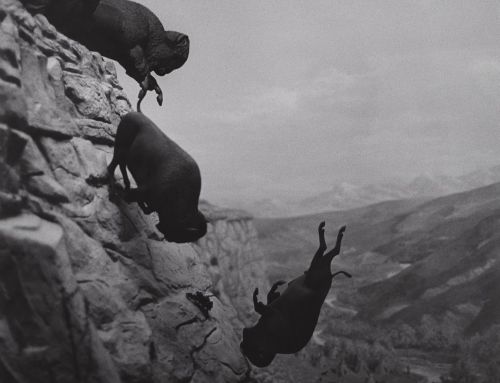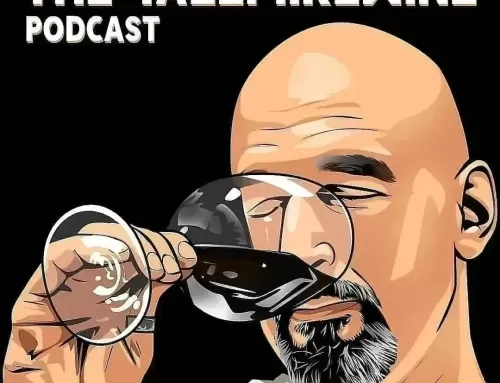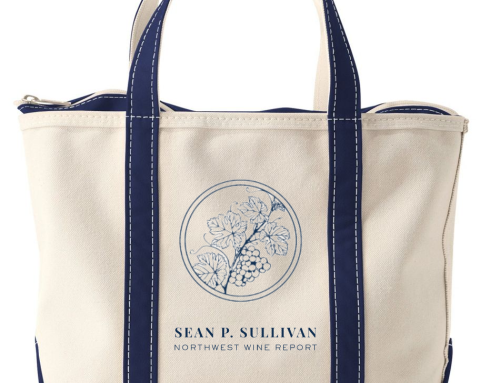This is the second in a four part series about Initiatives 1100 and 1105. In today’s post, I breakdown Initiative 1100. Next, a look at Initiative 1105. See the first part of the series here.
Yesterday, I listed the titles of the two initiatives. This is what voters will be seeing on the ballot. Today I will start by listing the ‘brief summary’ of Initiative 1100 and then break it down point by point.
Read a fuller explanation of Initiative 1100 – still incomplete in my opinion – written by the Senate here (Note: Opens .pdf). This is a must read document for anyone interested in the subject. If you want to go deep, read the complete text of 1100 here (I dare you. Note: Opens .pdf). The brief summary says:
This measure would direct the liquor control board to close all state liquor stores; terminate contracts with private stores selling liquor; and authorize the state to issue licenses that allow spirits (hard liquor) to be sold, distributed, and imported by private parties. It would repeal uniform pricing and certain other requirements governing business operations for distributors and producers of beer and wine. Stores that held contracts to sell spirits could convert to liquor retailer licenses.
I will break this language down point by point to attempt to explain the intention as I understand it.
1. Direct the liquor control board to close all state liquor stores
Washington State, a ‘control state,’ currently has a monopoly on hard liquor sales. This would eliminate this monopoly and close state-run liquor stores by December 31st, 2011.
2. Terminate contracts with private stores selling liquor
Currently state run liquor stores are run by private contracts. This terminates these contracts.
3. Authorize the state to issue licenses that allow spirits (hard liquor) to be sold, distributed, and imported by private parties
In the absence of state liquor stores, this would set up a system to license the sale of hard liquor.
4. It would repeal uniform pricing and certain other requirements governing business operations for distributors and producers of beer and wine
Let’s start with ‘repeal uniform pricing.’ Currently every retailer who purchases liquor pays the same wholesale price. No one is allowed to sell for less than this price by law, although people find ways to work around this. Initiative 1100 would eliminate this provision. It would allow the sale and purchase of liquor at varying prices for different entities.
What does this mean? At present, let’s say a bottle of wine sells for $20 wholesale and $30 retail. Every wholesaler pays the same $20 regardless of how much they buy of this or other wine. Initiative 1100 would allow wholesalers to pay varying prices. This means if a bottle of wine sells for $20 wholesale but I work out a deal with you because I am buying a lot of wine or because of…whatever…I can buy it for, perhaps, $17.50. Now when I go to sell it at retail, I can either make the additional profit, sell it for a less expensive price, or a combination of both. In other words, some wholesalers would see the $20 price; some could see substantially less.
Next let’s talk about the ‘certain other requirements’ that are not elucidated in this sentence. Some of these are substantial. I have attempted to explain in Table #1 the ones I am aware of based on collating numerous sources. In addition to explaining what the changes would be in the law, I have listed what the effects would be and why this is being proposed, along with any concerns I have read in various articles. Please note, this list may not be complete.
Initiative 1100 would:
|
Table #1 |
||
| Change in Law | Effects | Why/Concerns |
| Dismantle the three tier system | Retailers would now be able to buy directly from producers rather than going through a middle person, the distributor.
|
This saves companies like Costco money by eliminating a middle person. |
| Privatize the distribution and sale of spirits | This eliminates the state’s exclusivity on spirits distribution and sales. | This allows companies like Costco to sell spirits. |
| Repeal laws that bar volume discounting | Currently everyone who buys liquor pays the same wholesale price and no discounting is allowed based on volume sales. This would remove this provision. | This would allow people buying at volume to get discounts.
· Some have expressed concern that this would undercut the little guy who cannot purchase at volume. · Others have said that’s the way the free market works. |
| Repeal laws that bar centralized warehousing | Currently, centralized warehousing of liquor is prohibited. | Lack of central warehousing costs companies like Costco money. |
| Repeal laws that require retailers to pay cash on delivery
|
Currently retailers must pay for shipments as they are received. This would mean they would not have to do so, essentially extending a line of credit.
|
I am not clear on why this is important to Costco and others.
· Some have expressed concern about subsequent ability to get payments. Delays in payments for small businesses could have a significant effect.
|
| Repeal laws that limit cross-ownership between the producer, distributor and retailer tiers | Current laws prevent cross-ownership of certain businesses across the three tiers. This eliminates those laws. | This Prohibition era law, referred to as a “tied house” law, prevents businesses from having direct or indirect financial interests across tiers in order to avoid monopolies. From the Senate: “Washington’s tied-house prohibition was repealed by the Legislature in 2009 and direct and indirect financial interests between and among industry members and retailers are now permitted so long as the financial interest does not result in undue influence or have an adverse impact on public health and safety.” I am unclear on how what is proposed in Initiative 1105 differs from what was passed in 2009. |
| Repeal law that requires retailers to pay the same price whether a distributor delivers to them or they pick up their product from the distributor | Self-explanatory.
|
I believe the intention would be to negotiate a lower price if picked up from the distributor versus having the distributor deliver but have not seen any writing on this. |
| Repeal laws that prevent producers from paying for shelf space in stores | Liquor business would be permitted to pay for prime time shelf-placement, like other businesses currently can. | Companies would be able to pay to have their products front and center.
· Some have expressed concern that they would get squeezed out by larger companies.
|
| Repeal laws that prevent distilleries, wineries and breweries from giving gifts to retailers
|
Current restrictions include gifts, discounts, loans, rebates, fixtures, equipment, and supplies to retailers. | This would allow companies to provide retailers with gifts and promotional items to assist with sales. |
| Refocus Washington’s Liquor Control Board | Currently the LCB focuses on regulation, enforcement, and sales. This would remove sales from the equation.
|
This is mainly just a by-product of privatizing liquor sales, although many see the LCB’s dual role of enforcing rules and promoting liquor sales as a contradiction. |
Next up, a breakdown of Initiative 1105.







Sean, Thanks for an excellent breakdown of I-1100. Regarding your comment that "I am not clear on why this [paying for shipments as they are received] is important to Costco and others," I can assure you that, as an owner/operator of my own business for many years, being required to pay cash on receipt of merchandise is very rare, and it is a logistical nightmare. Almost all suppliers bill their clients and payment is due within 30 days or so. And you and I as consumers routinely do the same thing when we charge purchases on our credit card instead of paying cash. Further, in reading the bill myself, I don't believe the bill requires a winery to extend credit; it just repeals the law that requires cash up front.
Yes, this is an excellent analysis. It makes apparent the reasons why I-1100 is known as the "Costco" initiative. Sure, it favors big businesses. But look at other products – electronics, consumer goods, appliances – that are being sold by Costco, WalMart, Target and others. Should liquor be any different? Consumers have the right to seek the best price for products they want. That is free enterprise. The state liquor stores are in total contradiction to this. The beer industry opposes I-1100 and I-1105 because they prefer the status quo which reduces competition and enables them to sell their products on their own terms (see my comments on the article "Why Initiatives 1100 and 1105 Represent Everything…"). I agree with John above about the delivery payments issue. When I owned Esquin, it was a real hassle to have to write checks for every delivery. And the checking account had to be tracked every minute. There is no reason, though, why a supplier cannot set its own payment policy.
Sean,
I will take issue with one of your statements.
You write:
2 Terminate contracts with private stores selling liquor.
Currently state run liquor stores are run by private contracts. This terminates those contracts.
The state contracts with a few private stores to sell liquor. One such store is located in Duval. It is a hardware store with a contract to sell liquor. These stores are generally located in places where the state does not want to open a state store, mostly due to low traffic/sales. The contract stores are not staffed with state employees. 1100 terminates the current contracts, but allows these stores that have built their private businesses selling liquor to apply for new license to sell liquor.
The current system of state run stores, staffed with state employees, can be viewed as a jobs program. The same view can be applied to the distributors. Those distributors are the only way for liquor producers to get products into Washington. The state is creating jobs for store managers and clerks and distributors.
The private sector could do this more efficiently and provide greater selection, (where the market demand exists) and wider distribution and convenience.
Pat Ragar
John and Rand, thanks very much for lending your insight into the issue of payment on delivery. Much appreciated.
Pat, thanks for the comment. I don’t quite understand what issue you are taking with the language above. My understanding is that there are approximately 161 state liquor stores and 155 contract liquor stores. 1100s shuts down the state run stores and terminates contracts with contract stores. From the senate document:
“Starting December 2, 2010, the LCB cannot renew or extend contracts with existing contract liquor stores beyond December 31, 2011. The LCB must use all lawful means for terminating existing contracts with contract stores. Contract liquor store operators in good standing may choose to receive a general liquor retail license valid through December 31, 2012, without fee in exchange for relinquishing contract rights.”
The clear problem with 1100 and 1105 is that there is no clear remedy for the lost revenue resulting from privatization of liquor sales in Washington State. I would agree that no state should be in the business of liquor sales; however that is exactly what we have in Washington state (right or wrong). As Washington State taxpayers, we are essentially the owners of the liquor sales business, and both of these inititives seek to end our ownership, without buying that business from us. We are giving away our business of selling liquor, and getting nothing in return; ouch!
Anon, I agree that the lost revenue is a significant – a very significant – concern. While there may be some ways to make the revenue up in various ways, this is by no means certain.
Anon. above makes an interesting comment. How does the state taxpayers get payback for giving up state liquor store ownership? West Virginia privatized the sale of liquor by selling the state stores to private investors, reaping millions of dollars in doing so. Maine privatized by selling its wholesale distribution and retail outlets. Unfortunately, the Washington state legislature has no creativity in dealing with the issue of liquor sales. The legislature is so much in fealty to state employees that it has been incapable of dealing with the incongruity of liquor control and liquor sales. It looks as though a big business backed initiative is the only way to change. Too bad, but that's the reality.
Thanks for the coverage of this Sean. Looking forward to III and IV and hopefully more of your opinion on impact to the wine industry.
You should add a consumer column and impact on the consumer – one of the clear winners of getting this thing done.
Thanks for the comment Sean. I'm actually considering doing additional posts with winemaker/distributor/retailer opinions. Let me think about how to do some type of consumer redux as well. Thanks for the suggestion.
This all sounds like a good idea to me. Thanks for the breakdown.
Sean, If you choose? tell us about the Liquor Board (my opinion they and the state got us here) Who and why are they appointed , not elected? how many are double dipping ie. getting pensions and retirement from previous employment? of course we just open another BIG can of worms here LOL thx, Merlotman
Merlotman, now THAT would be interesting! Don't know if I have time to take it up but will try.
Sean, reading thru all this I sense that you may be tilting toward an endorsement of 1100? I know I certainly am. Though Josh Wade informs me that every single Spokane winery is opposed to both initiatives. Not sure why. It would really be helpful to do a tally on how wineries are voting. There are 700 or so wineries in WA. How are they going to vote? If there is a clear majority one way or the other, then that would certainly influence my thinking. Thanks for all your hard work on this!
Sean, you do a great service breaking down these initiatives in such detail. Perhaps it's obvious, but it hasn't yet been noted that the advantage of purchasing on credit for retailers is that they simply delay the cost of inventory. In a 30, or more likely, 60-day pay cycle, the product could be sold before it is paid for. In large volume operation, even a few days can have a big impact on profitability. Meanwhile, suppliers have to find resources to finance the gap in their cash flow timing.
Paul G, I'm definitely thinking a tally is in order. Hoping to get a good response back from folks and get posted at some point next week.
Simon, thanks for the thoughts on purchasing on credit. I would be interested to hear how this works for other grocery/non-grocery products. I'm assuming they don't pay on delivery which is part of what this is about?
Sean,
I'm the owner of a small winery, Willis Hall, in Marysville. For me, the most important aspects of I-1100 relate not to getting the state out of the alcohol-selling business, but rather to the elimination of the tied-house shackles that prohibit the way I want to do business, namely just like all other non-alcohol-related businesses.
With that as background, a number of things listed in your table above are, I believe, based on an incomplete understanding of current law related to the alcohol industry and consumer law in general. For instance, under the Federal Alcohol Administration Act, it is unlawful for a supplier to make a sale to a retailer at the expense of a competitor by extending more than 30 days' credit. Both the federal Robinson-Patman Act and Sherman Act as well as Washington antitrust law regulate trade to prevent harm to competition from predatory pricing.
Further, under the Federal Alcohol Administration Act, it is unlawful for a supplier to make a sale to a retailer at the expense of a competitor by renting display space or making any payment for display services, and retailers may not receive such fees. Thus, large enterprises cannot bump smaller suppliers by paying for shelf space.
In addition, under I-1100 federal law will continue to prohibit "pay to play." Under the Federal Alcohol Administration Act, it is unlawful for a supplier to give to a retailer, or a retailer to receive from a supplier, money or other "thing of value" to induce the retailer to purchase from that supplier in preference to a competitor who does not offer such an inducement. Prohibited inducements include, among others, paying for retailer advertising and in-store displays that exceed $300 in value. In addition, federal and state antitrust laws impose limits on the extent to which enterprises with market power can utilize tactics, such as merchandising payments, to assure that they do not prevent smaller rivals from competing.
And finally, under I-1100 federal and state laws will continue to protect small wineries from competitors' quantity discounts that are not cost-justified. Passing through actual cost savings in handling large-volume orders benefits consumers and stimulates healthy competition. Using financial muscle to offer discounts that exceed cost savings and harm other businesses' ability to compete violates the federal Robinson-Patman Act prohibition of price discrimination and state law of unfair competition, which imports federal standards, and also invokes federal Sherman Act and Federal Trade Commission Act restraints on predatory pricing.
In a mature industry, such as the Washington wine industry, competition always trumps protectionism and provides the best solution for the consumer. I-1100 will unshackle the industry from antiquated, no-longer-relevant laws that hamper business, discourage consumer choice, and artificially and unnecessarily increase prices. I-1105 will not do this. I look forward to your next blog on I-1105.
Thanks,
John Bell
Regarding Anon's questions/comments above about recouping lost revenue and "giving away" the state's liquor business. State revenue is irrelevant — it's profit that should be the focus of any decision. From what I understand, even the state's exorbitant margin (something like 52%) is barely enough to cover the cost of actually running the state stores, especially when you layer on the extremely generous benefits and pensions the state unions get. The state will continue to collect the taxes on the sale of liquor, and I understand that since the state doesn't charge its stores B&O taxes like the new stores will have to pay, it actually increases tax revenue. And the state will be selling all of the new liquor licenses resulting in a significant windfall for the state. Nothing is being given away, and long term, the state will be financially healthier as a result.
John, this is fascinating stuff. Definitely the first I have heard regarding how some of the federal laws would interact with some of the laws in 1100 and 1105. Thank you for sharing this. Much appreciated.
Thank you! I've been really struggling to understand all the issues associated with this initiative. Between your research and the associated comments, I finally feel like I understand enough to vote.
Anon, glad to be of service.